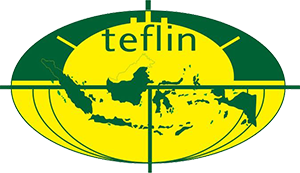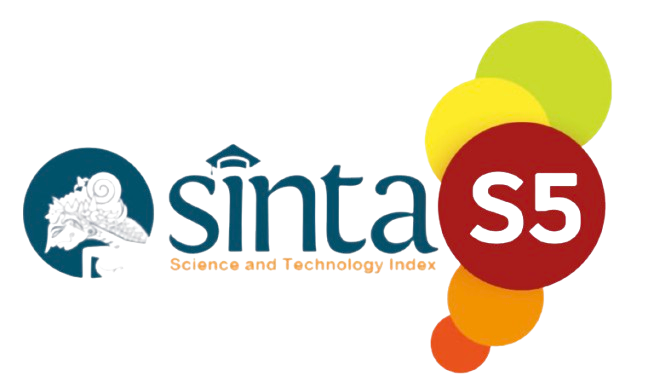Exploring Instructional Technology Tools and Resources for EFL Students
DOI:
https://doi.org/10.52217/ijlhe.v8i1.1768Keywords:
English, Instructional Technology, Online resources, techAbstract
Using instructional technology tools and resources is essential for English language teaching. This study was conducted to know the different instructional technology tools and resources used by English teachers for English language teaching. This paper's research design is a qualitative study. The researchers selected the purposive sampling method to administer the research sample. The research sample consisted of five SMA Negeri 4 Bandar Lampung English teachers. Semi-structured interviews were used in this study's data collection. In the present study, the data were qualitatively examined and summarized thematically. The results showed that English teachers employ a variety of materials and equipment, including a projector, laptop, sound system, digital textbook, and websites like YouTube and Instagram, to teach the English language. This result suggests that policymakers can utilize this study's findings to improve English learning quality by increasing learning tools and technologies.
References
Abraham, M., Arficho, Z., Habtemariam, T., & Demissie, A. (2022). Effects of information communication technology-assisted teaching training on English language teachers’ pedagogical knowledge and English language proficiency. Cogent Education, 9(1). https://doi.org/10.1080/2331186X.2022.2028336
Admiraal, W., van Vugt, F., Kranenburg, F., Koster, B., Smit, B., Weijers, S., & Lockhorst, D. (2017). Preparing pre-service teachers to integrate technology into K–12 instruction: Evaluation of a technology-infused approach. Technology, Pedagogy and Education, 26(1), 105–120. https://doi.org/10.1080/1475939X.2016.1163283
Alakrash, H. M., Razak, N. A., Khalaf, I., Ogudo, K. A., & Mezhuyev, V. (2021). Technology-Based Language Learning: Investigation of Digital Technology and Digital Literacy. Sustainability 2021, Vol. 13, Page 12304, 13(21), 12304. https://doi.org/10.3390/SU132112304
Bacalja, A. (2020). Digital writing in the new literacies age: Insights from an online writing community | Literacy Learning : the Middle Years. Literacy Learning: The Middle Years, 28(2), 33–43.
Braun, V., & Clarke, V. (2006). Using thematic analysis in psychology. Qualitative Research in Psychology, 3(2), 77–101. https://doi.org/10.1191/1478088706qp063oa
Braun, V., Clarker, V., & Rance, N. (2014). How to use thematic analysis with interview data. In A. Vossler & N. Moller (Eds.), The Counselling & Psychotherapy Research Handbook, (pp. 183–197). Sage.
Choi, L., & Chung, S. (2021). Navigating online language teaching in uncertain times: Challenges and strategies of EFL educators in creating a sustainable technology-mediated language learning environment. Sustainability, 13(14), 7664. https://doi.org/10.3390/su13147664
Hastomo, T., Kholid, M. F. N., Muliyah, P., Septiyana, L., & Andewi, W. (2024). Exploring how video conferencing impacts students’ cognitive, emotional, and behavioral engagement. Journal of Educational Management and Instruction (JEMIN), 4(2), 213–225. https://doi.org/10.22515/jemin.v4i2.9335
Hastomo, T., Sari, A. S., Widiati, U., Ivone, F. M., Zen, E. L., & Andianto, A. (2025). Exploring EFL Teachers’ Strategies in Employing AI Chatbots in Writing Instruction to Enhance Student Engagement. World Journal of English Language, 15(7), 93–102. https://doi.org/10.5430/wjel.v15n7p93
Istiara, F., & Hastomo, T. (2023). Exploring lecturers and administrative staffs’ strategies to hone EFL students’ digital literacy. JOALL (Journal of Applied Linguistics and Literature), 8(1), 151–172. https://doi.org/10.33369/JOALL.V8I1.25568
Joo, Y. J., Lim, K. Y., & Kim, N. H. (2016). The effects of secondary teachers’ technostress on the intention to use technology in South Korea. Computers & Education, 95, 114–122. https://doi.org/10.1016/J.COMPEDU.2015.12.004
Kim, K. T. (2019). The Structural Relationship among Digital Literacy, Learning Strategies, and Core Competencies among South Korean College Students. Educational Sciences: Theory and Practice, 19(2), 3–21. https://doi.org/10.12738/estp.2019.2.001
Kimm, C. H., Kim, J., Baek, E. O., & Chen, P. (2020). Pre-service teachers’ confidence in their ISTE technology-competency. Journal of Digital Learning in Teacher Education, 36(2), 96–110. https://doi.org/10.1080/21532974.2020.1716896
Knight, J., Dooly, M., & Barberà, E. (2020). Getting smart: towards critical digital literacy pedagogies. Https://Doi.Org/10.1080/10350330.2020.1836815, 33(2), 326–349. https://doi.org/10.1080/10350330.2020.1836815
Mandasari, B., Basthomi, Y., Hastomo, T., Afrianto, Hamzah, I., & Aminatun, D. (2025). The Snapshots of Indonesian Pre-Service English Teachers’ Perspectives on Integrating Technology-Based Tools to Rural Schools. Voices of English Language Education Society, 9(1), 42–57. https://doi.org/10.29408/veles.v9i1.27965
Mayer, R. E. (2024). The Past, Present, and Future of the Cognitive Theory of Multimedia Learning. Educational Psychology Review, 36(1), 8. https://doi.org/10.1007/s10648-023-09842-1
Novokreshchennykh, I., Byachkova, V., & Firstova, M. (2022). The Experience of Using Digital Trends and Smart Technologies in Literary Studies and Teaching of World Literature. Lecture Notes in Networks and Systems, 342 LNNS, 555–559. https://doi.org/10.1007/978-3-030-89477-1_53/COVER
Zhang, W. (2022). The role of technology-based education and teacher professional development in English as a Foreign Language classes. Frontiers in Psychology, 13. https://doi.org/10.3389/fpsyg.2022.910315














